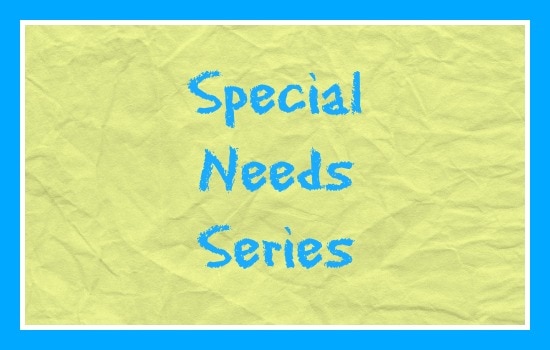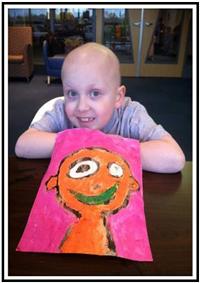Special Needs Series: Speech and/or Language Delays
It’s always amazing to listen to a group of children talking to each other. Some are so articulate, while others are quiet; some don’t have any trouble finding words while others have to think, or stutter over their sentences. Some of this may be due to speech or language impairments, one of the most common special needs in our schools today. Though usually found in younger children, speech disorders can linger into late elementary and middle school years depending on the cause.
Guest blogger Emily Halsey very helpfully laid out a few guidelines in aprevious post about what type of communication is appropriate at certain stages of development. These are just guidelines, so you shouldn’t panic if your child is not quite at the desired level. However, if you are concerned that your child is delayed, talk to your health care provider.
From Emily:
“By age 1, a child will typically exhibit a vocabulary of between 3-20 words for labeling familiar objects/people. They will still use lots of gesturing at this point, often combined with a word or a vocalization (ex. Uh, uh). Using sign language with or without spoken language is also an acceptable form of object labeling, although you should definitely encourage spoken language.
By age 2, children are usually using up to 50 different words, mostly nouns, and are beginning to combine 2-3 words in a single utterance. They should be able to say their own name, produce animal sounds, and use “no” appropriately. (I think they are all masters at that!) Also, a child may have a “word” for an object or person that only you understand, but if he/she uses it consistently and appropriately, it is still considered a word in their vocabulary arsenal. When kiddos are this small, they are not expected to pronounce everything perfectly.
By age 3, children can be using up to 800 words, answering and asking various Wh-questions, and can answer simple how and problem-solving questions.
Remember that all children develop at different rates, and just because you know another child who is “talking up a storm” doesn’t necessarily mean that your child is “behind” in their development…I always tell my girlfriends, go with your gut! You know your child better than anyone, and if you have that nagging feeling in your head, it certainly can’t hurt to consult a professional.”
The causes of speech and language delays can vary widely and include both physical and mental indicators. Hearing loss, autism and autism spectrum disorders are three physical possibilities. Expressive language disorder is another that is relatively common; this disorder occurs when kids can understand others but cannot seem to express their own feelings. Doctors believe that the primary cause appears to be a brain dysfunction that results in an inability to translate ideas into speech.* The mental possibilities are broader and may range from slow maturation to effective mutism, where kids choose simply not to speak in certain circumstances.
Children – both younger and older – with speech and language delays may become frustrated with attempts to communicate, and should be encouraged and given time to express themselves. Here are some tips from the American Speech Language Hearing Association that may help:
– Ask questions to encourage a thoughtful response
– Respond to a child’s intended message rather than correcting it
– Let your speech be an example of how you want the child to speak and respond
– Try to use natural interactions to increase language usage
– Provide visual prompts like pictures, objects, or a story outline to help a child tell his/her story
– Encourage a child to rephrase or “try again” if a word or sentence is unclear
– Use self-talk – act as though you’re on a cooking show and describe what you’re doing, leaving some pauses for the child to participate.
If you are concerned and ready to take the next step and speak to a professional, Emily Halsey offers the following advice: “North Carolina provides free screenings, evaluations, and if children qualify, therapy services, to children who are 3 years old and over through the school systems. You would need to talk to someone who handles preschool referrals if your child is under 3. If you call your school system’s information/help desk, they can steer you in the right direction. Qualifying guidelines do differ between the school system vs. private practices. Therefore, if a problem is mild, your child doesn’t qualify by school system guidelines, and you still want to address the problem, you can contact a private practice/therapist to see if they can provide treatment for your child. ”
Above all, the experts tell us to be patient! Try not to become frustrated or critical of your child’s efforts (or lack thereof). There is a lot of support to be found in the parenting, medical, and educational communities. With some special care and attention, most speech and language disorders are manageable for the long term.
*Source: American Pediatric Association
I also found some great information on www.families.com’s special needs blog. Spend some time there for more details and links on these conditions.







